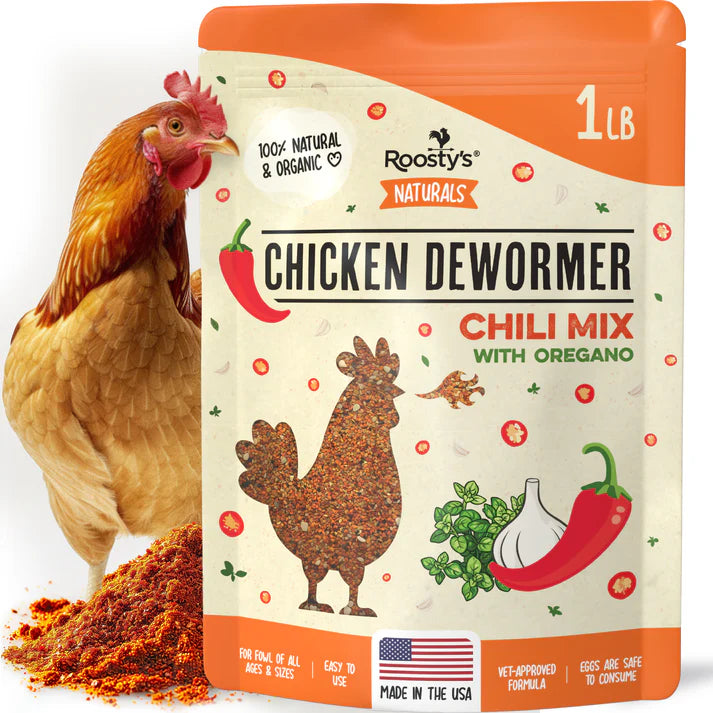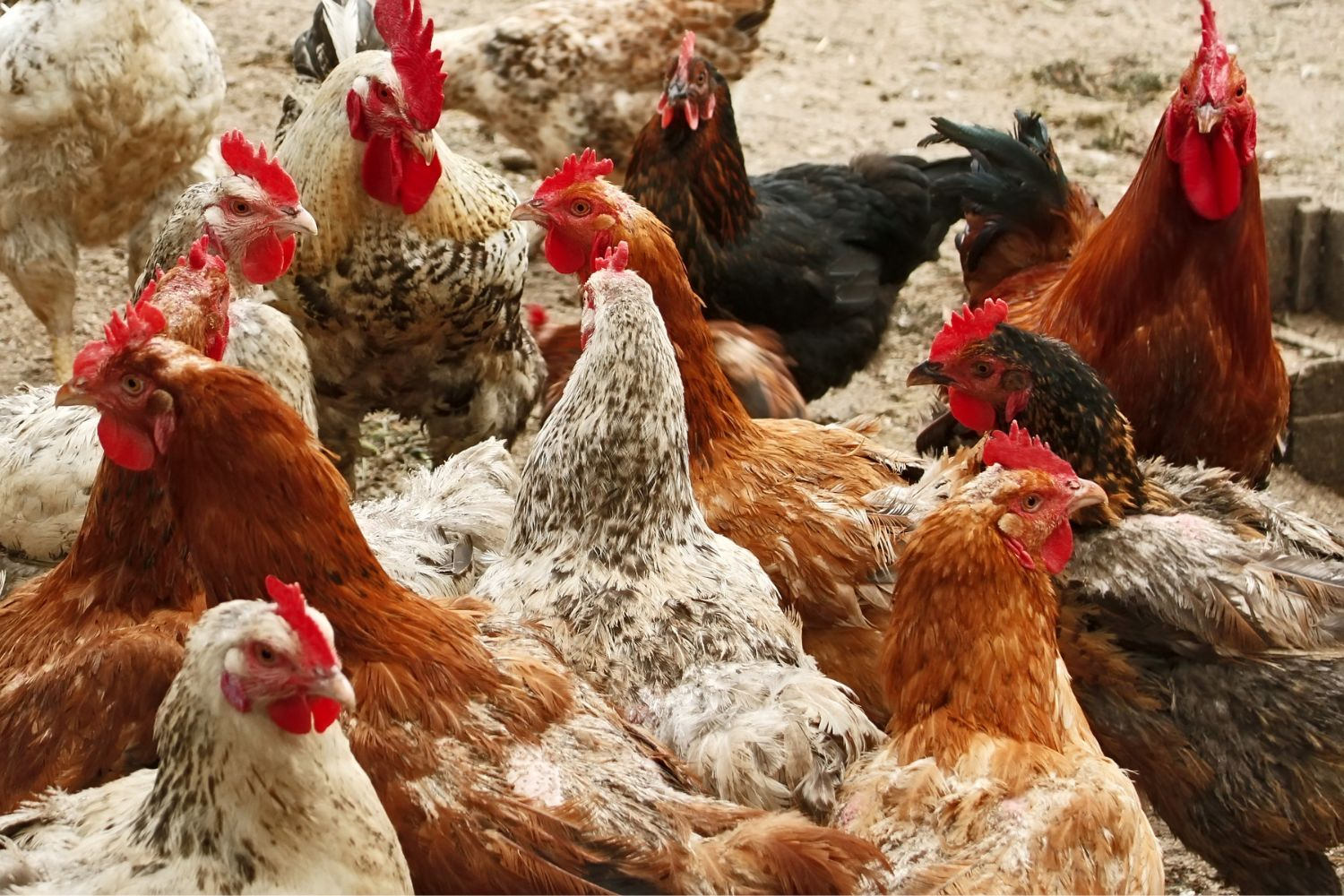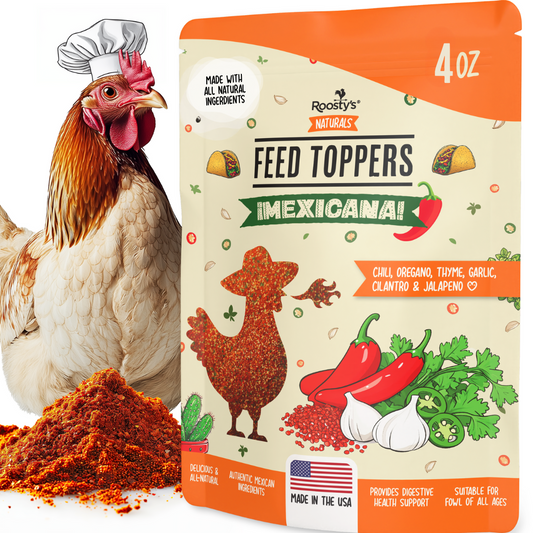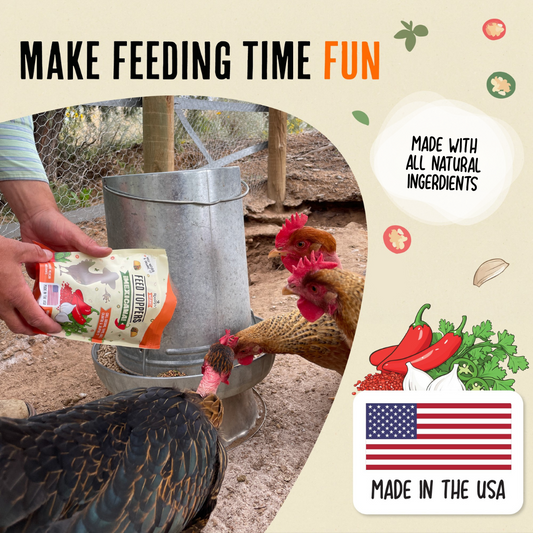
The Ultimate Guide To Getting Rid Of Rats In Your Chicken Coop

Chickens are the most widespread and abundant form of livestock in the world today. Globally, the number of chickens has more than tripled since the 90’s.
As of 2023, there are more than 34 billion chickens globally.
This is partially due to a growth in demand for eggs and meat from chickens. In the U.S alone, there are 9.22 billion chickens.
While many of these birds are kept on large farms, there are also plenty of homes and farms across the country with smaller chicken populations.
If you are thinking about farming chickens yourself, then it’s essential to complete all the necessary research.
This will help protect your investment and ensure that your chickens remain safe from issues including disease and pests.
Rats should be one of your top concerns if you are setting up a chicken coop.
These rodents are a common issue for chicken farmers because they are attracted to the feed and will quickly burrow their way into a coop.
Luckily, there are some steps that you can take to rat-proof your own chicken coop and avoid vermin like this causing you headaches.
In this guide, we’ll explore the key steps that you should take as well as the problems that you may face.
Rat-Proofing Chicken Coop Areas
Before we explore how to get rid of rats in chicken coop areas, it’s important to consider how to prevent them from accessing the coop in the first place.
There are a few key steps that you should take if you want to avoid rats becoming a nightmare for your chickens.
Invest In A High Quality Coop
First and foremost, it is essential that you purchase a high quality coop for your chickens.
Both the run and the coop must provide the right level of protection. We recommend selecting a coop with galvanized mesh on every side. When you are exploring purchasing the right coop, we recommend that you check the size of the holes in the mesh.
These holes should be no more than 11x11 mm. Smaller holes will help prevent rats from squeezing through into your coop.
Flooring Choices
You need to make sure that the floor of your chicken coop is secure as well. If your chicken coop is set up on dirt or grass, then there’s a strong possibility that rats will dig underneath and quickly burrow in.
There are a few ways to avoid this. First, you could think about purchasing a chicken coop with a wire mesh floor. Don’t worry, this won’t impact the chickens and it will protect them from digging rodents.
Alternatively, you could also think about creating a solid base for your coop. For instance, you could create a base from concrete paving.
This will provide the greatest level of protection and ensure that rats are not able to gnaw their way through.
Elevate Your Coop
If you have the option, then you should consider elevating your coop. Setting up your coop at least a foot off the ground is a great way to make it more difficult for rats to enter undetected.
This is a great choice to keep in mind if you are planning on building the coop from scratch.
There are some fantastic videos online that provide complete guides for how to create a coop like this.
How To Keep Rats Away From Chicken Coops

Even if you expertly rat proof your coop, with rats, where there’s a will, there’s always a way.
That’s why you also need to think about how to keep them away from the coop completely.
You don’t want them lingering long enough to find a way inside. While the chicken wire should prevent them from getting in, they can still chew through the timber.
So, make sure that you are trimming the grass as short as possible around the coop.
By trimming the grass, you will be able to see all around your coop and rats won’t feel safe while they’re trying to dig inside.
Remember, rats are largely nocturnal and most active at night. You might be able to scare them away from the coop with motion sensor lighting.
This will light up the area around the coop at the first sign of movement. However, this will also disturb your chickens.
Poison is another option but this should always be a last resort. Once the rat has ingested the poison it could be eaten by a house pet, one of your chickens or any other animal visiting your yard.
Poison won’t usually be necessary as long as you make sure that your yard is as inhospitable for rats as possible.
How To Get Rid Of Rats In Chicken Coop Areas?
Have you already spotted the telltale signs of rats inside your chicken coop? This could include droppings, urine, or the rats themselves.
It’s likely that an issue like this will start small. For instance, you may only notice a couple of rats inside your coop.
It’s important to be aware that rat populations grow quickly. Rats reach sexual maturity after just nine weeks and a female rate will usually give birth to between five and ten pups.
This means that within one year, a population could easily swell to more than 1,250. This risk is heightened by an easy to access source of food and water that your coop will provide.
Let’s look at how to get rid of rats in a chicken coop.
Check For Signs
It’s important to make sure that you remain alert for signs of a rat infestation. A problem like this is always going to be far easier to deal with if you notice the signs earlier.
There are various signs that you have a problem like this including:
- Rat droppings
- Timber that has been gnawed un
- Rat urine
- Missing eggs
- Scurrying noises
If you spot a rat in the coop, then this is a clear sign that the infestation is already serious.
Rats are great at remaining undetected and will avoid human contact for as long as possible. If you see one rat in your coop, it’s likely that it’s not the only one.
Clean Up Your Property
If you have noticed rats around your chicken coop, they may have been attracted to your property because of issues with clutter, unclean areas, and spaces where they can hide through the day.
This is why it’s important to make sure that you are cleaning up your property. Pay particular attention to areas close to your chicken coop such as piles of bricks or wood.
Clear all junk like this off your property to discourage rats from creating a home.
Rat Proof The Chicken Coop
As previously discussed, you do need to rat proof your chicken coop. It’s likely that the rats are living outside your coop and only entering the coop to get food and water.
That’s why it’s important to make sure that you are preventing them from re-entering. This can be quite tricky.
However, investing in a quality coop is a great start if you want to ensure that the rats stay out.
Rat Proof The Compost
A large number of people who raise chickens will also have a compost pile on their property. This is particularly true for those who have set up a chicken coop in their backyard.
While this is a great way to remain sustainable, it’s always going to attract pests including rats and mice. That’s why it’s important to lock down your compost heap and ensure that they can’t access it.
Don’t forget compost provides everything rats need for a cozy home. It’s got comfortable bedding, a space to breed and unlimited amounts of food.
You should store your compost in a closed steel bin with holes drilled through the sides. It’s crucial that you don’t leave anything that could be a food source for rats or mice readily accessible.
To avoid compost becoming a haven for a family of rats, soak it regularly with water and turn it over as frequently as you can.
If you cause enough disruption, then rats won’t be able to settle long enough to breed. However, you will need to remain consistent in your approach.
Be Proactive
If you think that there are already rats inside your coop, then we recommend investing in some high quality traps. Humane traps are readily available on the market.
You may need to set up quite a few traps, especially if you have already noticed the rodents running around your chicken coop. Use the feed as bait as you should immediately start catching rats each night.
It’s important to remember that this won’t tackle the root cause of your issue. To do that, you need to hit the rodents where it hurts.
Starve Them
If you have rats, the number one reason will be there’s a food source. You need to eliminate this as quickly as possible.
There are lots of ways that you might be feeding rats unintentionally. First, there’s your home waste.
This needs to be stored in a garbage can with a tight lid. If bags are left out then rats are going to be able to worm their way in.
You should also make sure that you are collecting eggs from your chicken coop regularly. Rats won’t usually attack chickens but chicks and eggs are a different matter entirely.
If eggs keep disappearing, then you may have a rat problem.
There have been stories where chicken coop owners have dug around in nesting boxes and found entire families of rats, feasting on the eggs produced. The other most significant food source is going to be your chicken food.
How Do I Prevent Rats From Eating My Chicken Feed?

Your chicken feed could be the number one food source for rats living around your property.
It’s quite common for people to keep their chicken feed outside where it is completely exposed.
You might think you’re safe using a plastic bin. However, this isn’t useful either because rats can chew through plastic in no more than an hour.
Similar to your waste and your compost, your chicken food also needs to be stored in steel cans with tight fitting lids. If you use most other types of containers then a rat will quickly chew through.
When using a chicken feeder and a water fountain, make sure that you bring them in each night.
While this might seem like a chore, you will be removing a potential food source for rats that may have found their way into the coop.
You should also be aware that if the feed or water is contaminated by rat urine or feces then there’s a serious risk of disease spreading through your coop.
Another smart tip is to carefully consider how much food your chickens need and give them this amount precisely.
In doing so, you can avoid any leftover food remaining in your coop which chickens can then feed on.
You could also explore special types of feeders.
There are certain automated feeders which ensure the chickens can access their feed but prevents rodents or other wild birds from gaining access.
These feeders are incredibly useful if you are worried about rats or think you may already have a problem like this.
You might be feeding your chickens scraps from the house while they are in their run.
There’s absolutely no harm in this. However, you do need to make sure that you are cleaning it up afterwards.
If you leave these scraps and leftovers lying around then they are going to attract pests. That could include insects, rats, mice and countless other wild animals that you don’t want hanging around your coop.
Creating A Rat-Proof Ramp For Your Chicken Coop
As mentioned, one of the best ways to prevent rodents from accessing your chicken coop is to elevate it.
However, if you are going to do this, then you will also need the right ramp. Making a rat proof ramp for chicken coop designs is tricky.
As you may be aware, rats can climb virtually any rugged surface. This includes vertical areas such as a garden fence.
However, rats are not able to climb smooth surfaces. Any surface that lacks texture or any footholds will be incredibly difficult for rats to climb.
As such, you could create a ramp for your chicken coop out of a smooth surface such as polished metal. The problem is that a ramp like this could also be difficult for chickens to use.
An alternate option would be a ladder or stairs instead of a ramp. This will be more difficult for rodents to access.
You just need to make sure that the runs of the ladder are close enough that a chicken will still be able to climb up.
You also need to think about the steepness of the slope for either your ladder or a ramp into your chicken coop.
Summary
As you can see, there are various steps that you can take to protect your chickens from a rat infestation.
Combating rodents with chicken coop design measures is the best option here. The right chicken coop design will make it far more difficult for rats to access your coop in the first place.
If you have already spotted signs of an infestation, then you will need to be proactive about changing the environment around your coop to make it as inhospitable as possible.
You may also need to think about setting up traps. If the situation is particularly dire, then it could also be worth hiring an exterminator to eliminate the issue completely.
If you don’t get professional support, then there’s a strong possibility that rats will continue to breed.
FAQs
Are Rats Common In Chicken Coops?
Yes, a recent study has shown a significant link between backyard chicken ranches and the growth in rat populations throughout Eugene, Oregon.
Pest control companies experienced a surge in business as soon as new ordinances allowed urban residents to raise chickens in their backyard.
Do Chicken Coops Attract Rats?
Chicken coops often will attract rats.
Rats tend to be attracted by the food. While they will not usually harm the birds or the eggs, they can still cause issues. Particularly, as they start to grow in numbers.
Are Rat Droppings Toxic To Chickens?
The main threat to your chickens from rats is the spread of disease. Rats and mice can carry diseases such as:
- Salmonella - transmitted through dirty drinking water that contains rodent urine or feces
- Leptospirosis - also known as Weil’s disease, is transmitted through infected rat urine in straw, water, or feed.
- Lymphocytic Choriomeningitis - found in saliva, urine and droppings of infected rodents.
Do Chickens Scare Off Rats?
Chickens are not typically vicious enough to scare off rats.
This is why it is crucial that you do put the right measures in place to prevent rats from entering your chicken coop or eating your feed.







